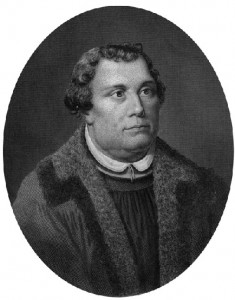
Evangelical Essentials (Part Eleven)
All Scripture is breathed out by God and profitable for teaching, for reproof, for correction, and for training in righteousness, that the man of God may be competent, equipped for every good work.
2 Tim 3:16-17 (ESV)
The Reformation doctrine of sola Scriptura affirms the priority of scripture over traditions, councils, and church authorities. No practice or doctrine is binding on the life of a believer unless that belief or practice can be found in scripture. Sola Scriptura does not negate Tradition, but simply places Tradition under Scripture as a source of authority in the church.
The doctrine of sola Scriptura is one of the most misunderstood doctrines of the Reformation. From both within Evangelicalism and without: this doctrine is distorted and gravely mischaracterized. Sola Scriptura does not mean that Evangelicals reject tradition and read only the Bible (i.e., the error of Biblicism). Evangelical doctrine is not solo Scriptura, where all church councils, traditions, church authorities, and Bible commentaries are rejected as guides and interpreters of scripture’s meaning.
Reformation Church historian, Timothy George, writes,
Sola Scriptura does not mean nuda scriptura nor scriptura solitaria! It means instead that the Word of God, as it is communicated to us in the Scriptures, remains the final judge (norma normans) of all the teaching in the church.
[Timothy George, “An Evangelical Reflection on Scripture and Tradition,†Pro Ecclesia: A Journal of Catholic and Evangelical Theology (Volume IX, Number 2, Spring 2000), 206.]
In similar essay, Timothy George, elaborates on the development Martin Luther’s understanding of sola Scriptura:
Under duress, Luther articulated what would come to be the formal principle of the Reformation: all church teaching must be normed by the Bible. The following year, in The Babylonian Captivity of the Church, Luther stated: “What is asserted without the Scriptures or proven revelation may be held as an opinion, but need not be believed.†Late medieval theologians placed Christian tradition alongside the Bible as a source of church doctrine. Luther emphasized instead the primacy of Scripture.
However, Luther did not reject tradition outright. He respected the writings of the early church fathers, especially those of Augustine, and he considered the universal statements of faith, such as the Nicene and Athanasian Creeds, binding on the church in his day. But all creeds, sayings of the Fathers, and decisions of church councils must be judged by—never sit in judgment upon—the “sure rule of God’s Word.â€
[Timothy George, Martin Luther, Early Years, Christian History magazine, electronic ed. (Carol Stream IL: Christianity Today, 1992).]
Sola Scriptura rejects the “two-source theory†that affirms Scripture and Tradition as being of equal weight and authority in the life of church. Alternately, the doctrine of sola Scriptura rejects the individualistic Anabaptist principle of “no creed but the Bible.†Reformed theologian, Keith Mathison adds,
Instead of advocating chaos, the Evangelical church must regain an understanding of the Reformation doctrine of sola scriptura, which is essentially nothing more than the early Church’s doctrine of scripture and tradition framed within a different historical context. The Church must affirm that Scripture is the sole source of revelation. The Church must affirm that Scripture is the sole, final, and infallible norm of faith and practice. And the Church must affirm that Scripture is to be interpreted in and by the communion of saints within the theological context of the rule of faith. Only by rejecting all forms of autonomy, institutional or individual, can any branch of the Church be in obedience to Jesus Christ the Lord.
[Keith A. Mathison, The Shape of Sola Scriptura (Moscow, ID: Canon Press, 2001), 347.]
I might add that the Canon Law of the Charismatic Episcopal Church affirms that Holy Scripture is “the final authority on all matters of faith and practice,†and “ . . . is to be understood in light of apostolic tradition and the inspiration of the Holy Spirit†(Canon Eight, I. B. 1-2). This definition is in its essence the doctrine of sola Scriptura as taught by the Magisterial Reformers.




